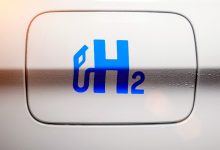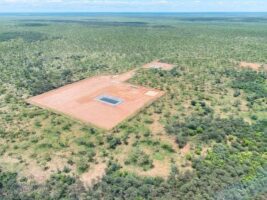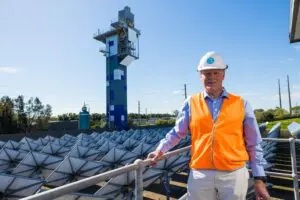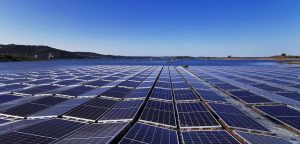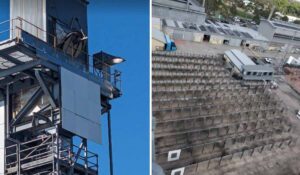The CSIRO has teamed up with petrol retailer Ampol to launch a new start-up to commercialise Australian developed hydrogen storage technology that they believe could represent a ‘step change’ in the way energy is stored and delivered in remote and off-grid applications.
The new start-up, Endua, has received financial backing from venture capital firm Main Sequence and was launched on Tuesday after securing a total of $5 million in initial investments.
The new company will commercialise new electrolysis technologies developed by the CSIRO that will allow zero-emissions hydrogen to be produced using electricity, stored and then used to deliver power as needed.
The company says that a single device would be able to deliver up to 150kW of capacity, allowing the company to target larger-scale applications and off-grid systems.
Endua will be led by CEO, Paul Sernia, who was a co-founder of EV charging system maker Tritium.
“We are rapidly transitioning to renewable energy to power our homes, our transport and our businesses. After being exposed to the energy sector through my work with Tritium, it was clear there was still work to be done in Australia’s transition to renewable energy. Solar, wind, hydro and batteries all play a part in getting us to net zero,” Sernia said.
“Yet there are places and situations where these sources won’t get us all the way there. Hydrogen will play a crucial role in our transition but only with the right technology and business model to make hydrogen power generation and storage cost-effective. Endua is making both achievable.”
The CSIRO said that it had developed the hydrogen electrolysis technology so that the hydrogen could be stored directly within the device itself, and allowing it to be used in backup power generation as needed.
“Our collaboration with Endua, and the hydrogen technology we have devised, can lead to a major step-change in reducing the cost of hydrogen-powered energy storage and delivery,” CSIRO lead scientist on hydrogen research, Dr Sarb Giddey, said.
Fuel company Ampol has backed the new Endua start-up, saying that it would leverage its existing expertise and connections with potential customers to help develop and test the CSIRO’s electrolysis technology for market.
Ampol recently committed to reaching net zero emissions for its operations, as well as increasing its investments in electric vehicle charging infrastructure at its existing network of more than 1,900 service stations in Australia.
The company said that it would also look to trial the production of green hydrogen and ramp up the deployment of solar and battery storage across its locations. But its net zero emissions target does not include the fuel it sells, which it hopes to do for many more decades.
The start-up, which will be based in Brisbane, will target the remote and off-grid market for early customers, potentially using the electrolysis technology to offset the need for diesel generators in off-grid applications.
The company says that the combination of the hydrogen storage technology with supplies of renewable electricity, like wind and solar power, could allow regional towns, mining sites and remote infrastructure to be powered entirely with zero emissions energy sources.
“We believe it’s possible to give everyone access to clean power, whether in the city or the outback. We’re solving the hardest problems in the move to net zero, for all purposes, not just those that ‘fit’ the renewables profile,” Sernia added.
Main Sequence said that it had helped to develop the business idea, investing in the new start-up as part of its ‘venture science model’, which looks to invest in new companies that have the potential to help solve global challenges.
Main Sequence partner Martin Duursma said that scientific advances being developed in Australia had a huge potential to benefit in a global shift to cleaner energy sources.
“A core focus of our new fund is helping uncover scientific discoveries, and finding the right partners to turn them into real, tangible technologies so we can reverse our climate impact,” Duursma said.
“Australia’s ingenuity and deep science background will be pivotal in building a clean hydrogen industry and decarbonising our energy grids. Delivering long-term, sustainable and reliable power with Endua presents an immense opportunity for Australia and the country’s energy sector.”
Main Sequence had also been an early-stage backer of innovative electricity retailer Amber, which recently inked a $20 million investment deal with the Commonwealth Bank.

